Former Environmental Protection Agency administrator Lisa
Jackson, now vice president of environment, policy, and social
initiatives at Apple, Inc. states: "Since 2018, Apple's
stores, offices, and data centers have run on 100% renewable
energy. Today all of our operations are carbon neutral, too.
And by 2030, every product will be also - how it is designed,
made, shipped, used, and recycled".
This OLLI class provides insight into how tech giants such as
Apple, Google, and others are providing leadership toward a
zero-carbon footprint global economy.
BIG PICTURE (providing context)
AR6 Climate Change 2021: The Physical Science Basis
https://www.ipcc.ch/report/ar6/wg1/#FullReport
GENEVA, Aug 9, 2021 - Scientists are observing changes in
the Earth's climate in every region and across the whole
climate system, according to the latest Intergovernmental
Panel on Climate Change (IPCC) Report, released today. Many
of the changes observed in the climate are unprecedented in
thousands, if not hundreds of thousands of years, and some
of the changes already set in motion-such as continued sea
level rise-are irreversible over hundreds to thousands of
years.
Earth's Energy Imbalance (Radiative Forcing)
The earth is absorbing more energy from the sun than it's
giving up due to increasing greenhouse gas concentrations.
The excess energy that the planet is absorbing is enormous.
The total energy imbalance is now greater than 3.1 W/m^2.
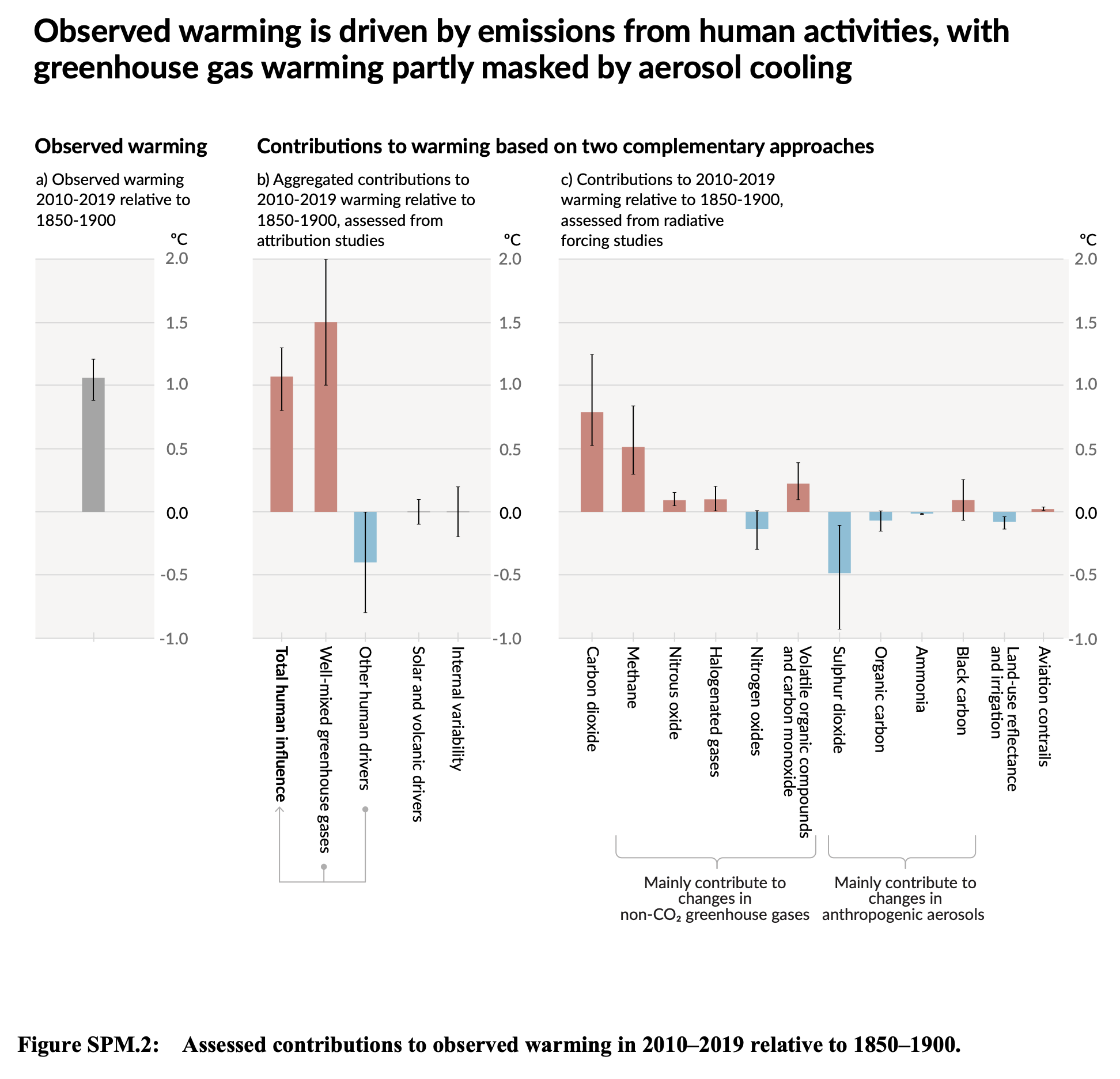

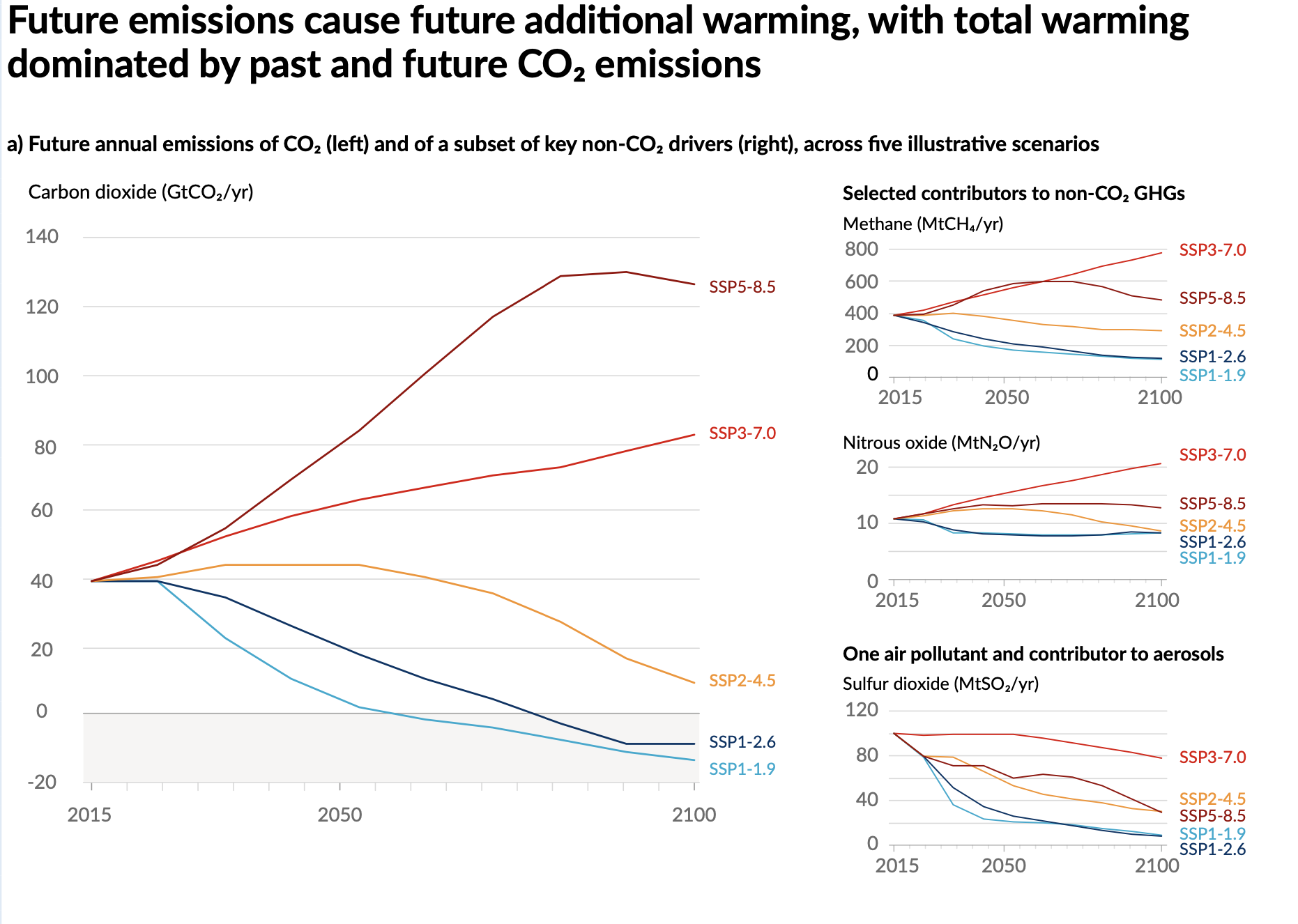
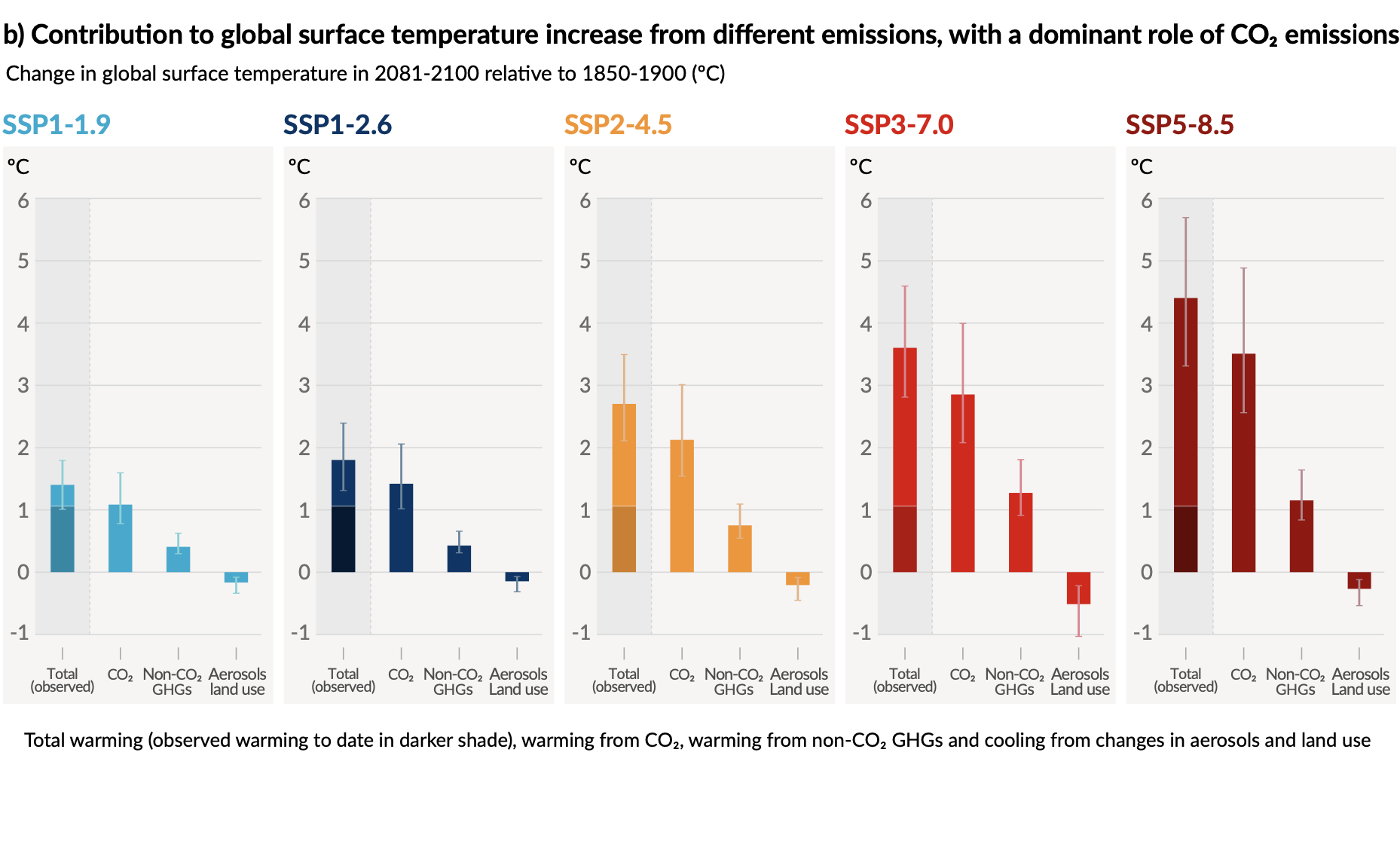
LISA JACKSON
Lisa Jackson - Apple Vice President, Environment, Policy and
Social [Justice] Initiatives
https://www.apple.com/leadership/lisa-jackson/
Lisa oversees Apple's efforts to minimize its impact on the
environment by addressing climate change through renewable
energy and energy efficiency, using greener materials, and
inventing new ways to conserve precious resources. She also
leads Apple's $100 million Racial Equity and Justice
Initiative, focused on education, economic opportunity, and
criminal justice reform - and is responsible for Apple's
education policy programs, its product accessibility work,
and its worldwide government affairs function.
Apple's Lisa Jackson on leadership, justice, and generations of change
https://www.greenbiz.com/article/lisa-jackson-how-apple-aims-lead-environment-and-equity
Apple's Lisa Jackson is moving social justice to the top of
the list for protecting the environment. Coming from one of
Fortune's "most powerful women in business" at one of the
world's largest companies, she has views that could have a
long-term global impact.
Apple's big-ticket sustainability goals released this year
for 2030 include becoming carbon-neutral and achieving a
net-zero impact in all operations. The company also recently
embraced an outward-facing leadership role on its social
impacts, with a $100 million investment to create a Racial
and Equity Justice Initiative (REJI), which CEO Tim Cook
asked Jackson to lead in June.
1. Identifying intersections
Apple CEO Tim Cook: The unfinished work of racial justice and
equality call us all to account (4+ min)
Tim_Cook.mp4
2. Empowering communities
As part of its REJI initiative, which centers around
representation, inclusion and accountability, Apple
describes using its voice and cash to transform systemic
disempowerment into empowerment. One way is to hire more
coders of color and to build up wealth in underserved
communities by doing more business with suppliers owned by
people of color.
3. Making the human factor material
It's been two years since Apple planted the seeds to grow a
circular economy by committing to make all of its devices
from recycled or renewable materials eventually. Jackson
described how the iPhone maker quickly found that its
"moonshot" of shunning ingredients that need to be mined is
not just about closing the loop on material resources, but
on human resources as well. The tech giant prioritized
eliminating conflict minerals and questionably sourced rare
earths early on because of the labor and supply chain
difficulties involved.
In this area, Apple so far has created its own recycled
aluminum alloy for devices including the Apple Watch,
MacBook Air and iPad, and it uses recycled tin in solder in
some logic boards. It has developed profiles of 45 materials
in terms of their impacts on the environment, society and
supply chains, singling out 14 for early action on recycled
or renewable sourcing. The haptic engine, which enables a
variety of vibrations in iPhone models 11 and up, uses
recycled rare earths. The Daisy disassembly robot gained a
cousin, Dave, which recovers rare earth elements, steel and
tungsten from spent devices and scrap.
4. Being first and bigger
Where Apple leads, others in the market listen. For
instance, so far it has nudged more than 70 of its suppliers
to adopt clean energy, which Apple has fully implemented in
its offices, data centers and stores without leaning on
offsets. The company's supply chain partners of all sizes
are ripe for doing something differently, Jackson said.
APPLE PRESS RELEASE
March 31, 2021
Apple powers ahead in new renewable energy solutions with over
110 suppliers. A new energy storage project marks the next
frontier of Apple's efforts to become carbon neutral for its
supply chain and products by 2030 (Images & Captions)
https://www.apple.com/newsroom/2021/03/apple-powers-ahead-in-new-renewable-energy-solutions-with-over-110-suppliers/
Apple announced over 110 of its manufacturing partners
around the world are moving to 100 percent renewable energy
for their Apple production, with nearly 8 gigawatts of
planned clean energy set to come online. Once completed,
these commitments will avoid over 15 million metric tons of
CO2e annually - the equivalent of taking more than 3.4
million cars off the road each year. Additionally, Apple is
investing directly in renewable energy projects to cover a
portion of upstream emissions, as well as a major energy
storage project in California to pilot new solutions for
renewable infrastructure.
Apple Environment (Look at the main points, clip)
https://www.apple.com/environment/
We don't pretend to have all the answers. What we do have
are goals to strive for, and a global community of
businesses committed to doing the right thing by people and
the planet.
Apple: 2021 Progress Report (Look at the main sections) 106 pgs
https://www.apple.com/environment/pdf/Apple_Environmental_Progress_Report_2021.pdf
Developing solutions to global challenges is never an easy
journey, and it isn't one that can be undertaken alone. In a
year like no other, Apple has continued to work with a
global network of colleagues, companies, and advocates to
further our efforts to make our environmental work a force
for good in people's lives-and give the communities most
impacted by climate change a seat at the table.
In our current report, you'll find more detailed information
about our efforts, how we measure our overall environmental
footprint, and the progress we've made over the past year.
________________
Climate change is one of the greatest threats of our time,
putting at risk people's access to clean air, adequate
food, safe drinking water, and sanitation.
This means the impact of the changes we make-improving
energy efficiency and transitioning to renewable energy
across our supply chain-extends beyond our factories,
stores, and offices to benefit those who live in the
communities where we operate. The future success of our
company depends on taking urgent and decisive action. For
years, we have increased energy efficiency and the use of
renewable energy, yet we know we have to do more. That's
why last year, we unveiled our most ambitious plan to date:
to achieve carbon neutrality for the entire life cycle of
our products by 2030. This goal places us 20 years ahead of
the recommendations put forward by the Intergovernmental
Panel on Climate Change (the United Nations body for
assessing the science related to climate change) calling
for carbon neutrality as a planet by 2050. The science is
clear: Our world cannot wait for an inclusive, carbon
neutral economy. Every business has a responsibility to
create a meaningful plan to reduce its emissions.
Our goal and approach are informed by science. We focus on
avoiding activities that generate carbon in the first
place. And, wherever possible, we're switching to
lower-carbon alternatives. In cases where emissions can't
be avoided, we'll then remove the equivalent amount of
carbon from the atmosphere. While we pursue viable
solutions, we also align to the same carbon mitigation
hierarchy in our strategy. It isn't the easiest approach,
but it's the one science shows is necessary to address
climate change.
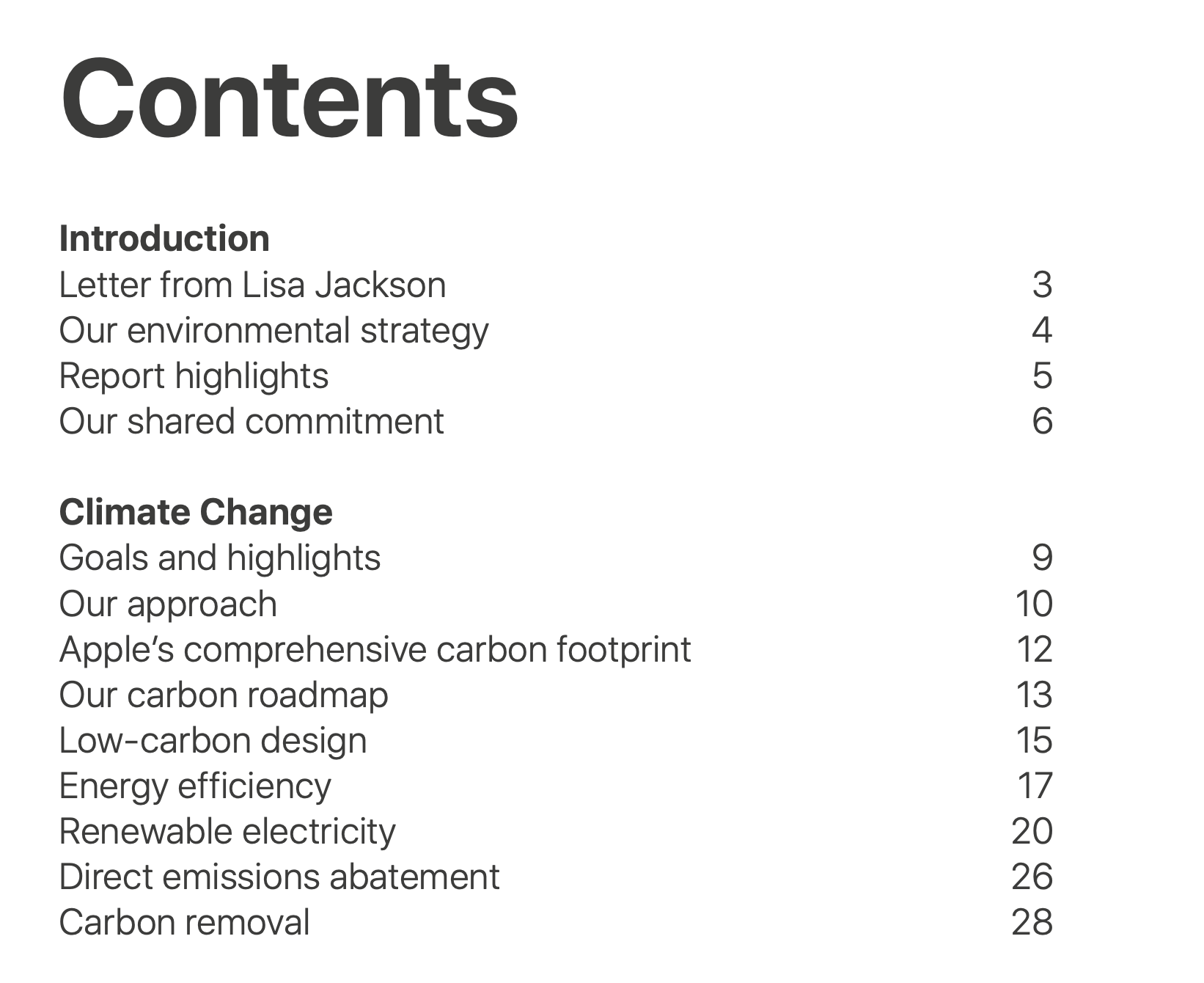
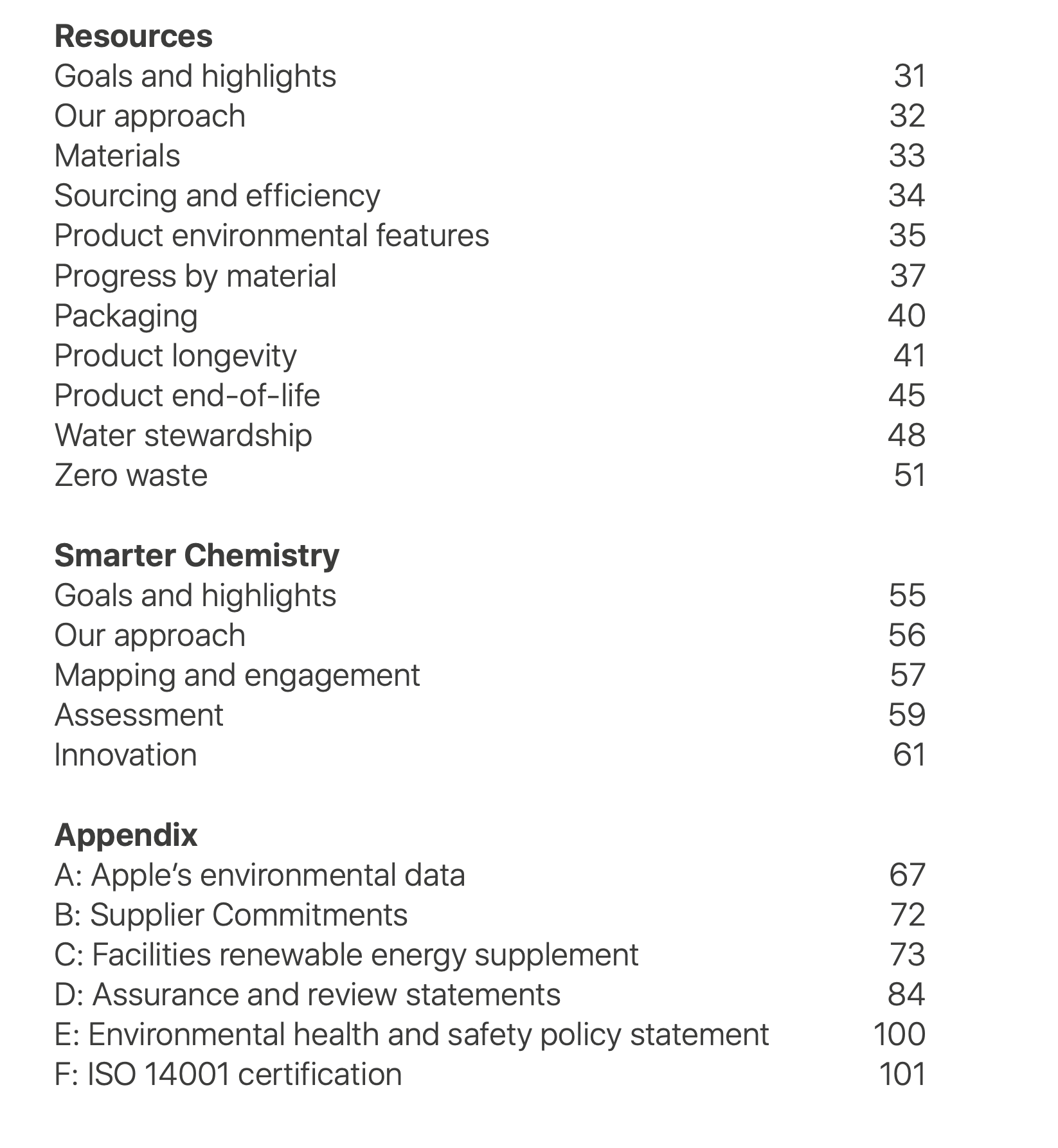 TED Talk: Apple's promise to become carbon neutral by 2030 (5+ min)
2020t-lisa-jackson-liz-ogbu-003-1177679e-840b-498c-b9a1-5000k.mp4
Under the leadership of Lisa Jackson, Apple's environment
and social VP and former head of the EPA, the company is
already carbon neutral within their own corporate and retail
boundaries. By 2030, Apple hopes to extend carbon neutrality
to their supply chain and consumers. In conversation with
urbanist and spatial justice activist Liz Ogbu, Jackson
shares thoughts on leadership, tech, the environment and
building a green economy.
Motivation
1. Reduces Operational Cost
2. Provide Greener Investor Alternatives
3. Sustainable Operations - how product is designed, made,
shipped, used, and recycled
4. Leadership - Reducing & Reversing Global Warming Causes
5. Leadership - Sustainable Global Economy
This Just In: Apple adds more clean-energy suppliers on road
to 2030 carbon neutral goal
https://macdailynews.com/2021/10/27/apple-adds-more-clean-energy-suppliers-on-road-to-2030-carbon-neutral-goal/
TED Talk: Apple's promise to become carbon neutral by 2030 (5+ min)
2020t-lisa-jackson-liz-ogbu-003-1177679e-840b-498c-b9a1-5000k.mp4
Under the leadership of Lisa Jackson, Apple's environment
and social VP and former head of the EPA, the company is
already carbon neutral within their own corporate and retail
boundaries. By 2030, Apple hopes to extend carbon neutrality
to their supply chain and consumers. In conversation with
urbanist and spatial justice activist Liz Ogbu, Jackson
shares thoughts on leadership, tech, the environment and
building a green economy.
Motivation
1. Reduces Operational Cost
2. Provide Greener Investor Alternatives
3. Sustainable Operations - how product is designed, made,
shipped, used, and recycled
4. Leadership - Reducing & Reversing Global Warming Causes
5. Leadership - Sustainable Global Economy
This Just In: Apple adds more clean-energy suppliers on road
to 2030 carbon neutral goal
https://macdailynews.com/2021/10/27/apple-adds-more-clean-energy-suppliers-on-road-to-2030-carbon-neutral-goal/
Google Aims to Attain Zero Carbon Footprint Goal by 2030
https://www.nasdaq.com/articles/google-aims-to-attain-zero-carbon-footprint-goal-by-2030-2020-09-15
Alphabet's Google division Google is steadily moving toward
attaining its zero carbon goals by 2030.
Reportedly, the company is planning to run its offices and
data centers fully on carbon-free electricity by 2030. It
aims to achieve the goal by utilizing renewable energy
solely. Notably, Google's 61% of global hourly electricity
consumption was generated from solar, wind and other
renewable energies in 2019.
Microsoft Joins The Corporate Race To Zero Carbon
https://www.forbes.com/sites/arielcohen/2020/01/24/microsoft-joins-the-corporate-race-to-zero-carbon/?sh=622e9fc529e5
Microsoft joined the likes of Amazon, Apple, Tesla and other
tech giants in a pledge to dramatically reduce its carbon
footprint in the coming years. In fact, the company aims to
achieve carbon negative status by 2030, meaning that it will
remove more CO2 from the atmosphere than it pumps out over
the course of normal business operations.
Key Megatrends Driving Businesses Towards a Zero Emission Future
https://www.corporateknights.com/sponsored/key-megatrends-driving-businesses-towards-a-zero-emission-future/
The urgency to address climate change is ever growing.
Businesses are under increasing pressure from investors,
legislators, customers, and employees to accelerate their
strategic vision and map out a plan of tangible actions. The
good news is the technology and know-how exist today to help
businesses on their journey to a zero-carbon future.
Partnering with organizations that have experience with
their own sustainability journey can reduce risk and
uncertainty for those that are hesitant to adopt digital
solutions. Early adopters of technology have learned that
the path towards a zero-emission future requires you to set
goals, announce your targets, deploy custom efficiency
programs and adjust where necessary - it's a non-linear and
collaborative process that takes time, resources and people
to get right.
Certified B Corporations
Certified B Corporations are a new kind of business that
balances purpose and profit. They are legally required to
consider the impact of their decisions on their workers,
customers, suppliers, community, and the environment. This
is a community of leaders, driving a global movement of
people using business as a force for good.
500+ B Corps Commit to Net Zero by 2030
https://bcorporation.net/news/500-b-corps-commit-net-zero-2030
As the UN Climate Change Conference, COP25, is underway in
Madrid, over 500 companies are publicly committing today to
accelerate the reduction of their greenhouse gas emissions
to reach a 1.5 degree trajectory leading to net zero by the
year 2030-20 years ahead of the 2050 targets set in the
Paris Agreement.
These companies are part of the global community of
Certified B Corporations, businesses that meet the highest
verified standards of social and environmental performance,
transparency, and legal accountability. There are over 3,000
B Corps in the world, hailing from more than 70 countries
and 150 industries, harnessing the power of business to
solve major social and environmental challenges facing the
world today, including the climate crisis.
This commitment to significant carbon reduction leading to a
net zero future by 2030 is part of the most accelerated
climate action effort by as large a constituency of
businesses in the world. It demonstrates true leadership in
a time of severe environmental and economic unrest and
uncertainty. Below is the full statement issued by the
Certified B Corporation community outlining their
commitments, as well as quotes from leaders within the
community. The full list of companies committed to net zero
by 2030 is also listed below.
sam.wormley@icloud.com





TED Talk: Apple's promise to become carbon neutral by 2030 (5+ min) 2020t-lisa-jackson-liz-ogbu-003-1177679e-840b-498c-b9a1-5000k.mp4 Under the leadership of Lisa Jackson, Apple's environment and social VP and former head of the EPA, the company is already carbon neutral within their own corporate and retail boundaries. By 2030, Apple hopes to extend carbon neutrality to their supply chain and consumers. In conversation with urbanist and spatial justice activist Liz Ogbu, Jackson shares thoughts on leadership, tech, the environment and building a green economy. Motivation 1. Reduces Operational Cost 2. Provide Greener Investor Alternatives 3. Sustainable Operations - how product is designed, made, shipped, used, and recycled 4. Leadership - Reducing & Reversing Global Warming Causes 5. Leadership - Sustainable Global Economy This Just In: Apple adds more clean-energy suppliers on road to 2030 carbon neutral goal https://macdailynews.com/2021/10/27/apple-adds-more-clean-energy-suppliers-on-road-to-2030-carbon-neutral-goal/